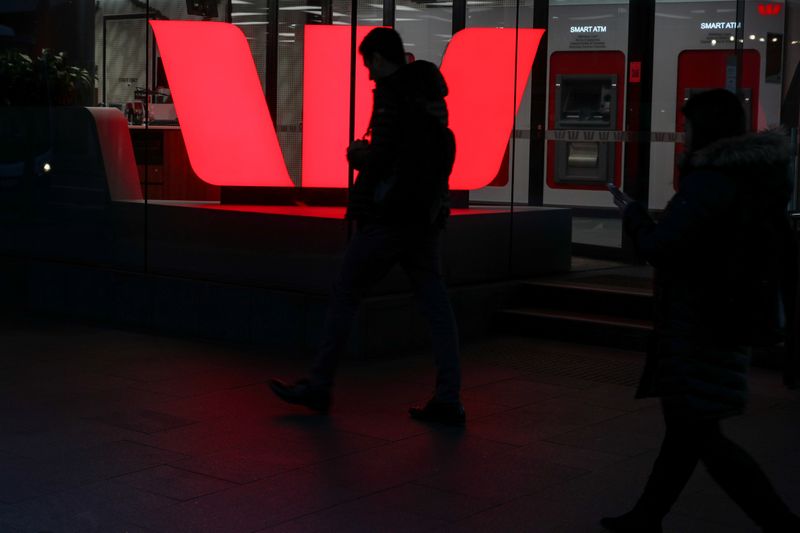By Paulina Duran
SYDNEY (Reuters) - Westpac Banking (NYSE:WBK) Corp's potential spin-off of its New Zealand unit due to tighter regulation could see some of the other three Australian-owned banks that make-up the bulk of the kiwi banking system follow its lead, investors and analysts said.
Seeking to safeguard the New Zealand banking system, an increasingly activist central bank has been progressively separating the operations and capital of the local units from their Australian parents.
The high costs involved have challenged the outlooks of the Australian-headquartered Big Four lenders, with analysts estimating their return on equity ratios could fall by between half and a third from the about 15% they used to deliver.
"All banks would be considering the same question, given changes in regulatory and capital requirements," said Sean Sequeira, chief investment officer at Australian Eagle Asset Management.
The units of the Big Four - Australia and New Zealand Banking Group, Commonwealth Bank, National Australia Bank (OTC:NABZY), and Westpac - dominate over 85% of the New Zealand banking market.
In 2017, the Reserve Bank of New Zealand (RBNZ) introduced a requirement to have the ability to run the subsidiaries locally within six hours notice, if needed, and in 2019 it asked them to almost double their local capital levels within seven years.
The capital requirements were extended by a year due to the COVID-19 pandemic.
On Wednesday, freshly sanctioned by the Reserve Bank of New Zealand for the poor risk governance of its unit, Westpac said it was in the "very early" stages of assessing a demerger.
RBNZ said Westpac NZ had, for years, operated outside of its own risk settings for technology, and would have to raise its cash holdings until it improves governance.
"Westpac will not be the only Australian bank looking at its NZ operations," Jefferies (NYSE:JEF) banking analysts Brian Johnson said.
Like its competitors, Westpac has been offloading businesses it considers non-core to focus on its home market, and spinning off the New Zealand units or selling them would be in line with that strategy.
This week, New Zealand also introduced more measures to cool its housing market that analysts expect will hit mortgage growth in the country.
With profitability becoming more challenging, "we don't think an Australian bank owning a New Zealand bank makes sense," Johnson said.
Representatives from Commonwealth Bank declined to comment.
ANZ, which owns New Zealand's largest lender, said that its unit remained a "core part of who we are and our long-term future", but it added that the capital changes introduced would "have consequences" without specifying what those were.
Similarly, NAB said its BNZ unit was a "critical part" of its growth strategy and that there were no major changes planned for its asset portfolio.
"I think there's first mover advantage if Westpac moves first," said Jarrod Martin, a senior banking analyst at Credit Suisse (SIX:CSGN). "There are unlikely to be multiple buyers for banking businesses of that size."
Westpac's New Zealand unit represents about 10% of its earnings and credit exposure. According to KPMG, it could be valued at over A$10 billion ($7.60 billion).
"There is a lot of money floating around in New Zealand and around the world at the moment trying to find a home where they can earn some money," said John Kensington, KPMG's head of Banking and Finance in New Zealand.
"So I think there would be definitely appetite for new attractive investments coming into the market, and goodness me, blue chip banking stocks would attract a lot of interest."
A full separation and a re-branding of the banks' operations however, would likely be very costly, Kensington added.
($1 = 1.3158 Australian dollars)
